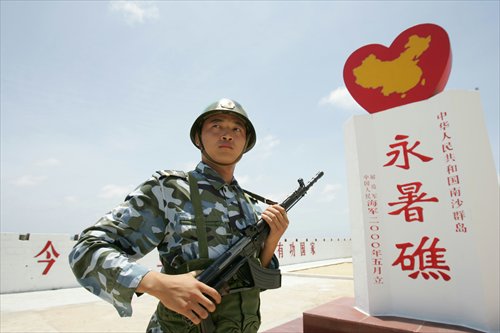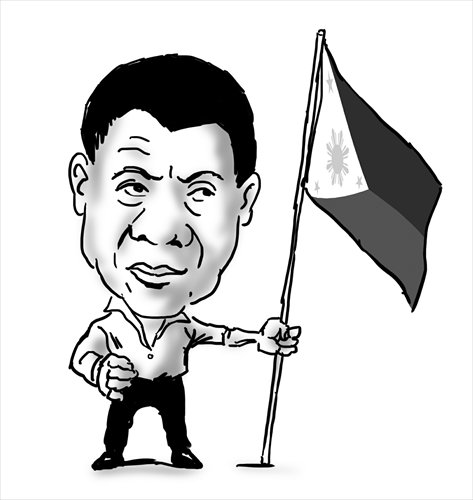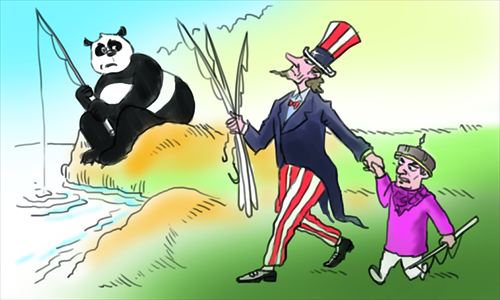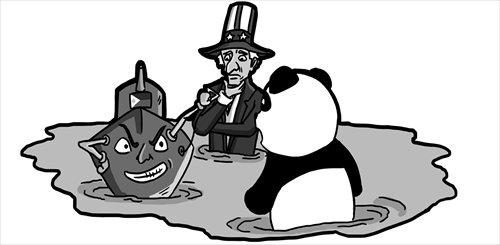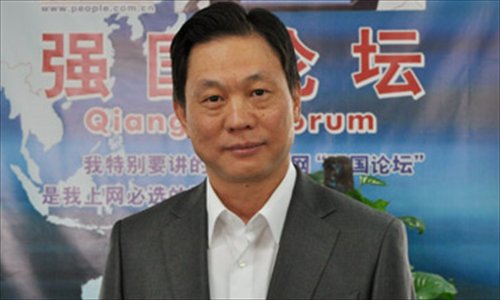Duterte sends welcoming signs on Sino-Philippine ties
No matter who the Philippines’ president is, it’s impossible for the country to totally abandon US defensive support. But one-sided attachment with the US will only hurt the country in the long-run.
Tribunal applies double standards in UNCLOS case, say experts
The Arbitral Tribunal has adopted a double standard in interpreting the UNCLOS.
US destroyer’s South China Sea show an insipid affair
If the South China Sea eventually becomes the main stage for strategic rivalries between China and the US, it will benefit China more. The whole of Chinese society will be more resolute and it means China would have the chance to solve its peripheral and strategic problems at the same time. But the US, whose acts are prompted by greed, will view the South China Sea as its burden sooner or later.
Manila arbitration nothing but farce
China’s position is to safeguard its sovereignty and maritime rights and interests, as well as to preserve the integrity, authority and solemnity of the UNCLOS.
Duterte may have limited room for change on maritime disputes
With his “big mouth,” Duterte is seen by many as the “Donald Trump of the Philippines.” His victory reflects Philippine citizens’ strong dissatisfaction with Aquino’s rule.
Duterte may shift Manila’s foreign policy
Many believe that whoever assumes office will adjust the nations’ unscrupulous policy toward China.
Unfair verdict may cause UNCLOS crisis
If they make a big fuss of the verdict and force China to accept it, the South China Sea will enter into a new period of instability.
Pragmatism can triumph over fear in Huangyan dispute
The US government, which bought the Philippines from Spain for $20 million, did not bring an end to anti-Chinese practices.
Time on China's side over Huangyan spat
In fact, Beijing has many advantages in its overall relationship with Manila.
Taiwan can't keep silent over Huangyan
Even if the Taiwan authorities want to win recognition from the international community, they should never choose a time when external forces are provoking Chinese sovereignty.
Experts’ views on Huangyan Island dispute
The US would prefer that the dispute had been averted, but now that it has developed, the US wants to see it managed peacefully.
US not ready to be Philippines' savior over Huangyan Island
The US still needs to prevent a strategic rivalry from spiraling into confrontation with China and maintain a healthy bilateral relationship.
China keeping calm over Huangyan Island
During this period of time, the Philippine government has been encouraging the local media to hype up the unfriendly mood toward China.
Cool heads must prevail in Huangyan spat
Manila will only seek negotiation or shelve disputes after suffering great losses and grave lessons. Otherwise, talk will not lead to anything even if there is one in place.
Huangyan white paper a needed step
The benefits of publishing a white paper on Huangyan Island are multifold. We can make clear and persuasive explanations to the world about the indisputable fact that Huangyan Island belongs to China and our intentions to solve this issue peacefully.
Philippines contradicting itself in claims over Huangyan
The standoff between China and the Philippines over Huangyan Island continues, with Manila recently declaring that Panatag Shoal is its preferred name for the island, while encouraging its fishermen to fish there.
Celebrity voice on April 25: Huangyan Island dispute may settle down, for now
The Philippines is obviously the loser of the dispute over Huangyan Island. Both sides want to tone it down for a while.
Huangyan crisis hints long-term tensions
What can we predict from the naval standoff between China and the Philippines near Huangyan Island in the South China Sea? The answer depends on the next action China is going to take.
